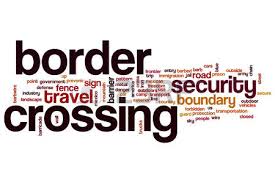The European Union 2020 Strategy aims at a smart, sustainable and inclusive growth, principle which is found in all Community programs’ objectives, and last but not least in the program for education, training, youth and sport, i.e. Erasmus+ 2014-2020 as well.
 According to the recent Isfol study entitled “The cultural mediator in six European countries (Italy, Spain, France, Germany, Greece and the United Kingdom) areas of intervention, access paths and skills”, the stable presence of millions of foreign citizens in various EU countries, starting with Western Europe, daily urges the political authorities and legislators to promote an expansion of the potential of social safety networks. In this context, the Ministry of Labour, Health and Social Policies has matured the need to carry out an analysis aimed at reconstructing, in a national and European comparative perspective, vocational and employment dimension of the cultural mediator. Trends for the 2011-2016 period show an increase of 1,5% in the request of Social Services experts included Cultural Mediator by the labour market, which is above the average growth.
According to the recent Isfol study entitled “The cultural mediator in six European countries (Italy, Spain, France, Germany, Greece and the United Kingdom) areas of intervention, access paths and skills”, the stable presence of millions of foreign citizens in various EU countries, starting with Western Europe, daily urges the political authorities and legislators to promote an expansion of the potential of social safety networks. In this context, the Ministry of Labour, Health and Social Policies has matured the need to carry out an analysis aimed at reconstructing, in a national and European comparative perspective, vocational and employment dimension of the cultural mediator. Trends for the 2011-2016 period show an increase of 1,5% in the request of Social Services experts included Cultural Mediator by the labour market, which is above the average growth.
For this reason, the partners strongly believes it is necessary monitoring and evaluating the real needs of the local context, in the context of vocational training, in terms of standards and training needs that include the knowledge and skills to be acquired, in order to focus attention on problems in interethnic coexistence in relation to political, economic, international and cultural issues. That is, with this project ‘Crossing Borders’, the students will acquire a solid cultural and linguistic basis in the cultures and language skills of different cultures focusing on- oral and written techniques supported by appropriate metalinguistic supervision.
 The trainees will also have the opportunity to acquire basic knowledge in history, politics, economics and law, and geography and anthropology , to know and observe the operating model and problems of different work environments (public institutions, enterprises and public bodies in healthcare and social sector, organizations and NGOs) in relation to the vocation of the territory and its possible developments, including inter-ethnic and inter-cultural dynamics.
The trainees will also have the opportunity to acquire basic knowledge in history, politics, economics and law, and geography and anthropology , to know and observe the operating model and problems of different work environments (public institutions, enterprises and public bodies in healthcare and social sector, organizations and NGOs) in relation to the vocation of the territory and its possible developments, including inter-ethnic and inter-cultural dynamics.
The knowledge and technical competencies should be accompanied by proper communicative approaches that make it easier to deal with immigrants and to offer them a more professional and appropriate service.
Only through this practice period abroad, the beneficiaries would put in practice their learning path, enriching it with new contents thanks to traineeship cooperating with and within institutions and organizations, both public and private, including the health sector, the socio – cultural-educational world, the security sector, public administration, as well as enterprises and freelancers. it should be considered as, for 100 students of third and fourth year of high schools of Humanities and Language and high students of Vocational Training for “Cultural Mediator courses” at Accredited bodies from regions, such an experience of internship and/or informal learning session abroad, could be an advantage in their recruiting process.
